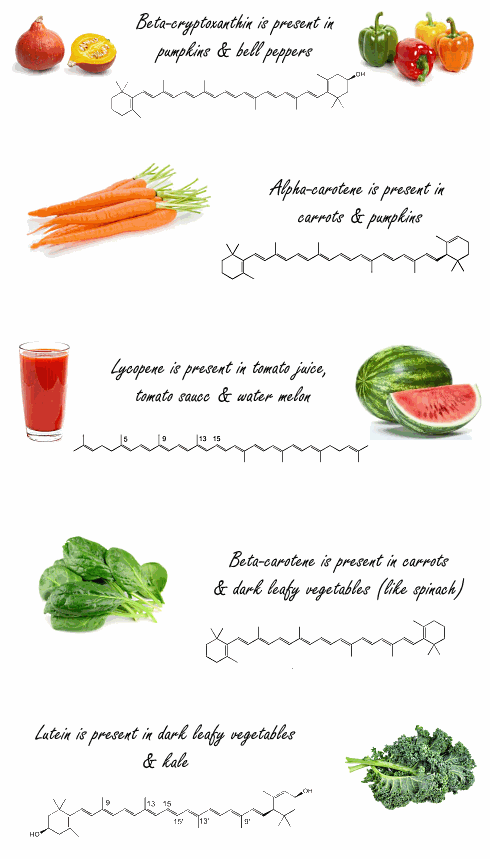|
More carotenoids in your blood, longer telomeres
The more carotenoids from foods like carrots, pumpkins, peppers and kale circulate in your system, the longer you will probably live. Korean researchers at Seoul National University conclude this from an analysis of data collected in the United States.
Study
Kyoung Bok Min and Jin Young Min used data from 3,660 American adults who participated in the National Health and Nutrition Examination Survey between 1999 and 2002. During this period, researchers took blood from the study participants and measured the concentration of alpha-carotene, beta-carotene, beta-cryptoxanthin, lutein and zeaxanthin, and lycopene. In addition, researchers determined the length of the telomeres in the DNA of blood cells.
Telomeres are located at the ends of the chromosomes. During the aging process, those telomeres become shorter. The faster the telomeres shorten, the faster the biological aging process takes place.
Results
The telomeres of the study participants with the highest concentration of alpha-carotene, beta-carotene, and beta-cryptoxanthin were 5-8 percent longer than the telomere length of the study participants with the lowest concentration of alpha-carotene, beta-carotene, and beta-cryptoxanthin.
The researchers were able to calculate that for every doubling of the concentration of carotenoids in the blood, telomere length increased by a few percent.



Carotenoids are mainly found in fruits and vegetables. Good sources include carrots, pumpkins, bell peppers, tomato products, leafy greens, and kale.
Conclusion
"Although the findings need to be confirmed, they suggest that carotenoids have a protective effect on telomere loss and that a high intake of these carotenoids may potentially prevent or delay the aging process and age-related diseases", the researchers conclude.
Source:
Eur J Nutr. 2017 Apr;56(3):1045-52.
More:
Carotenoids in carrots, oranges and tomatoes protect against dementia 27.07.2020
Lutein, the anti-cancer compound from kale and spinach 03.11.2019
How omega-3 fatty acids help beta-carotene to better protect against cancer 22.10.2019
Archives:
Carotenoids
Longevity
|
|






